How to help your child in french immersion
French Immersion | 5 Tips for English Speaking Parents
This is a question we are so often asked when a child in a french immersion program is struggling to develop efficient reading skills. Like most difficult questions there is no standard response and requires a lot of proactive inquiry and research on the part of a parent. Our mission is to support students and families achieve their goals, so if your goal is to succeed in French Immersion, keep reading!
Here is the good news, children have a natural capacity to acquire new languages and there are many strategies parents can use to support their child without giving up on French Immersion altogether.
1. Be enthusiastic and positive!
Even though we said it, this goes without saying and we're here to remind you that you're doing a great job!
Your encouragement is critically important to your child's success and how you react to challenges is more important than your prior knowledge in a subject area. We know it may seem daunting when you struggle to interpret your child's homework assignment, but if they see you model confidence, enthusiasm, and joy in the learning process you're teaching them the most important skill of all, resiliency!
2. Put your first-language first.
English-speaking families are often concerned that spending time practicing English will confuse their child's work in French, but research shows the opposite to be true. Having a strong foundation in English is key to grasping additional languages. The sooner a child can feel confident in their first language, the sooner their brain can make space for a second.
If your child has a strong foundation in the English phonetic code, they are more likely to succeed in a French Immersion classroom. Read our blog, "What is Phonics?" to learn more about this code and why it's critical to reading success.
Did you know there are 37 speech sounds in French versus 44 in English? 10 French consonant sounds are directly transferable from French to English and vice versa and 4 consonants require some slight variation. Watch this short video from Fluent Forever - Learn Any Language to learn more about the French phonetic alphabet.
Watch this short video from Fluent Forever - Learn Any Language to learn more about the French phonetic alphabet.
3. Compare and contrast vocabulary.
Make vocabulary development a deliberate activity at home. Position your child as the teacher simply by asking them questions you know they can answer. Confidence is key! There is no more effective teaching strategy than having the student be the teacher. You don't have to be an expert in French (or calculus, or physics, or ancient history ...) to help your child succeed.
Quick tips for at home:
- Label objects in your home with sticky notes in English and French. Compare commonly used English and French words like "banana" versus "banane".
- Play the French and English version of classic board games like Scrabble, Taboo and Pictionary.
- Choose books that are slightly below your child's reading level.
4. Make reading fun!
Another universally effective teaching strategy! Children learn best when they are having fun and feel confident. It's important to differentiate between learning to read and reading for pleasure.
It's important to differentiate between learning to read and reading for pleasure.
Children spend hours at school developing their reading and writing skills and teachers do a fantastic job creating a safe, conducive learning environment where it's okay to make mistakes. To little people, school is their full-time job, their profession, their career. Reading at home should feel like a vacation!
If you're concerned with your child's progress, take mental notes during storytime and record them as soon as possible. Reach out to your child's teachers in private for confirmation, support and recommendations. Be proactive and have your child's skills assessed by a professional.
5. Use tech support!
You know there's always an app for that. If you have an iPhone, download iSpeech, a text to speech app, or spend as few as 5 minutes a day practicing your French using Duolingo.
Is there an app out there that you love? Share it with us in the comments!
At Halifax Learning we want to support children and their families achieve their goals and help students not only stay in French Immersion but flourish. If you think your child's foundation in English is unstable, contact us for a free, no-obligation literacy skills assessment!
If you think your child's foundation in English is unstable, contact us for a free, no-obligation literacy skills assessment!
Helping Your French Immersion Student When You Don’t Speak French
Grade 2. That was the point in my daughter’s educational career that I was officially outclassed. The moment where I could no longer reliably understand her worksheets. The tipping point at which, as a begrudging monolingual Anglophone, I no longer had the vocabulary help my kid with her French homework. It was like a sad, sorry version of Are Your Smarter Than a Second Grader? (Hint: no.)
I have to admit, it stung. I’d always envisioned a parenthood where I sat around the table with my child, gently shepherding her as her work — and understanding of the world — grew more complex. Instead, I was iced out by verb conjugation and passé compose, the horrors of my own miserable Grade 9 French performance flooding back to me. And as someone who’s made a career of language, writing and communication, it was an extra-prickly pill to swallow.
You'll Also Love: What to Know Before Enrolling Your Child in French Immersion
Of course this was a fate of my own doing. We had chosen to enroll our daughter in French immersion, after all. For my husband, the choice was based on his own positive experiences with French immersion. For me, it was a reaction to the lingering shame of speaking only one language. An early professional encounter where, as the only Anglophone, an entire table full of French speakers reverted to English just to accommodate me cemented my resolve that my child will not suffer this particular handicap.
As a family unit we are fortunate to have one French-capable parent, leaving me the opportunity to deflect with a simple, “Go ask your Dad.” But for many families in French immersion, a program with ballooning enrollment all across the country, the skills to do the drills are lacking. And for parents, not being able to help can be uncomfortable and alienating.
Let them gleefully and incisively correct your terrible, awful, dreadful accent.
Because even if you can bust out a passable accent, to them, it’s literally the worst.
Intrigued by my own predicament (“If I can’t help now what will happen come Grade 6? Grade 8??”) I became a bit fixated on the question: how can you help your kids succeed in school if you can’t understand their work?
I posed this question to my daughter’s Grade 4 teacher while on a field trip one day. Aside from the usual tips of having them listen to French TV and all that, she offered one bit of advice that completely transformed my thinking: “Help them feel ownership of their language because it’s a decision that’s imposed on them.”
Reframing French from something they do, like school, to something they own, like their identity, has helped me find different tools for helping my daughter. It’s no longer about helping her do her homework (and as our teacher offered, if homework is too difficult for kids to do at home by themselves then it’s something to address with the teacher), it’s now about helping equip her with the skills to do her homework.
You'll Also Love: 8 Books Your French Immersion Student Won't Be Able to Put Down
Give them the upper hand
Ego is really everything, isn’t it? Ego is what triggered my existential crisis about being inadequately equipped to help my daughter (What? I can’t be her all-knowing, ever-helpful mother?!?), and it’s what can help kids gain confidence as they’re thrust into a whole new world of communication, particularly when they’re just starting out.
How do you boost their ego? Let them gleefully and incisively correct your terrible, awful, dreadful accent. Because even if you can bust out a passable accent (like I can – most of the time), to them, it’s literally the worst. Revel in their rolling R’s. Marvel at the mouth sounds they’ve learned to make so quickly!
By allowing them to (kindly) mock you and correct you, you’re reinforcing what they’ve learned in the classroom at home. It provides a bridge between their two, isolated language realms.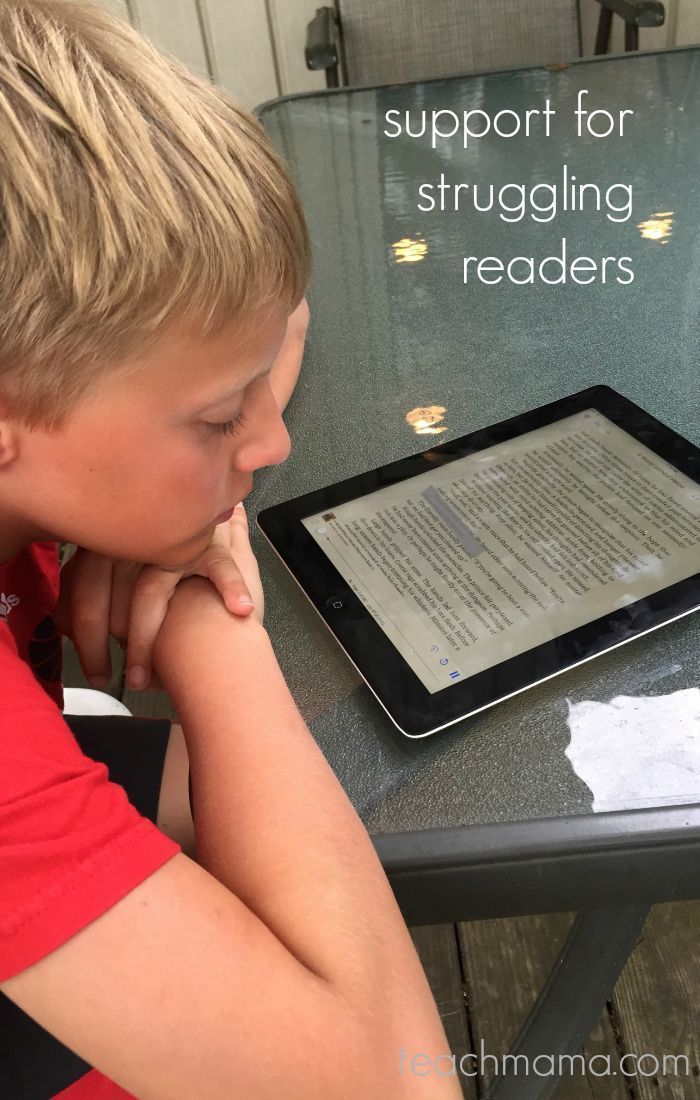
Give them the opportunity
Another gem from our teacher: “Give kids an opportunity to speak French with someone other than their teacher.”
French camps over the summer help retain proficiency from one year to the next, and family trips where there are chances to flex their French are great.
But don’t force it; allow it to come naturally. My daughter, for instance, freezes and giggles whenever we’re with other French-speaking friends and we ask her to switch tongues. And that time we went to the depanneur in Gatineau and said “Look honey, you can speak French!”, she took one look at the pimply, teenage clerk and gave me that glowering, soul-piercing look of “Not on your life, woman.” But fair enough. It has to be on their terms.
You'll Also Love: 10 Book Series Your Kids Will Devour
Give them some slack
As parents we’re prone to looking for teaching opportunities in everyday life. A mistake is made? A lesson! Feelings are hurt? Teach resilience! Bedtime reading? Make them read in French!
Teachers will always tell you that any reading supports progress in both languages, and that any lags in English language tend to fade by Grade 4.

While the compulsion might be to build a mini French library at home, it’s important to cut kids a bit of slack. Sure, having options available is wise, as is trolling the French collection at the library, but sometimes just allowing kids a comfortable place to be, well, kids, is the best way we parents can support their learning.
If a French agenda is forced on them, there might be revolt. If the opportunity for them to follow their language whims exists, you might be surprised what they choose. But don’t fret if it’s all English at home. Teachers will always tell you that any reading supports progress in both languages, and that any lags in English language tend to fade by Grade 4. From my experience, this is true. As is the fact that some kids are born readers and some aren’t — and there’s not much to do about that.
Give yourself some slack
In reality, we parents shouldn’t be doing our kids’ homework! Instead we should teach them the skills needed to figure it out. For me, a writer, I now help my daughter by talking things through (in English) and helping her formulate and prioritize her thoughts that she then writes in French. Dad helps with spelling and grammar and analytical thinking. We play to our strengths.
For me, a writer, I now help my daughter by talking things through (in English) and helping her formulate and prioritize her thoughts that she then writes in French. Dad helps with spelling and grammar and analytical thinking. We play to our strengths.
Other times, it’s about coaching her on time management, or encouraging her to think critically, or guiding her to where she can find the answer for herself.
Because, really, at the end of the day, many of the details and specifics that are learned at school are forgotten. It’s the ability to manage workloads, be clear in communication, break down a problem, and be resilient in the face of stress or failure that kids need to learn — whether in English, French… or Emoji.
9 tips for parents from a French teacher
Modern parents increasingly believe that English alone is no longer enough for a child, it is necessary to learn a second language. For example, French. How to motivate a child to master the language of Hugo, how to maintain his interest in classes? Advice for parents is given by Damien Remy, a graduate of the University of Nantes, a French teacher originally from the city of Angers.
Damien Remy, French teacher at P'titCREF 9 private trilingual kindergarten0003
Open French culture to your child
I noticed that here in Russia children learn English because they need . But French is a different matter. Perhaps mom and dad have never been to Paris or Nice, they have neither family nor business ties there, but they just like the language, they love French cinema, music and want the child to get acquainted with this.
Whatever language your children start learning, I recommend parents to focus on this: when you study French, German, Chinese, you discover another world and become richer from it.
But do not think that it is the parents who choose which language to study for their child. In my experience, this is not always the case. I worked with children who, even before they met me, listened to and loved French songs, saw French cartoons, heard about Disneyland in Paris, or even went there.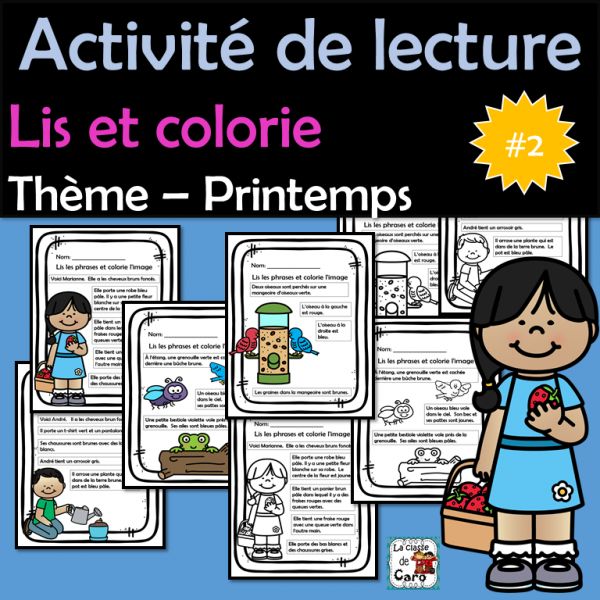
French is not the most difficult language
There is an opinion that French is not easy, that not everyone will master it. I don't have any specific difficulties in teaching French to Russian children. The most difficult thing is to explain the two main French verbs: être - to be and avoir - to have, as well as articles and nasal sounds, but there are such "pitfalls" in English, which is considered relatively easy.
I have worked with children who have French as a second foreign language after English. If they had no problems with the verbs of being in the first foreign language, then they coped with the second one as well. Don't scare your child with "difficult" French, it's not like that at all.
By the way, about the simultaneous study of two foreign languages. If they belong to the same group, for example, French and Spanish are Romance languages, then the child may be confused due to similar vocabulary. For example, the word jardin: it is "garden" in both Spanish and French, but this word is read differently depending on the language. And the child can get confused and pronounce it in Spanish in the flow of French speech. But this problem goes away on its own over time.
And the child can get confused and pronounce it in Spanish in the flow of French speech. But this problem goes away on its own over time.
All ages are submissive to the language
My youngest student was two years old, and here I can definitely say: it's early! Such kids get tired quickly, forget quickly, it is hard for them to study the language diligently and systematically. But if classes do not stop after a year, but continue at a suitable rhythm, there is a chance that the baby will learn everything and speak French fluently.
I think it's much more important how much time a child is willing to devote to classes. I had a student with whom we studied for 18 hours a week for three years. As a result, by the age of eight, she read, wrote and spoke French even better than Russian!
In my work, I prefer to purposefully teach grammar no earlier than five years old, and a child can learn the alphabet and phonetics even at four years old.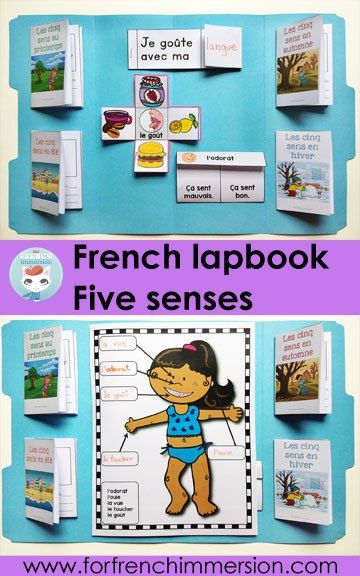 If we diligently study with a child for at least two hours from Monday to Friday, or just 10 hours a week, then in three years he will definitely speak.
If we diligently study with a child for at least two hours from Monday to Friday, or just 10 hours a week, then in three years he will definitely speak.
Be teachers at home
It is very important when the parents of the student help the teacher, and for this they themselves do not need to know French. At home, they can ask the child: “What is the name of what you eat for lunch in French? What color is your shirt? Tell me, what time is it?" Yes, they cannot control whether the answer is correct. But they will encourage the child to speak and think in French - this is the most important thing. Turn on French cartoons without translation, music for your child, help him find pen pals in French-speaking countries, in general, feed his interest in a new culture in every possible way.
Play together! After all, it is an excellent teaching method. I like the Uno card game. It is good because each card has its own color and number, and you can ask the child to call them in French, ask him to describe his cards. You can play monopoly, commenting on all actions in French: "I got six points", "I skip a move."
You can play monopoly, commenting on all actions in French: "I got six points", "I skip a move."
Stimulate interest in all things French
You can stimulate this interest by showing your child what he loves in French. For example, I showed my students Star Wars in my native language. You can turn on classic and modern music with it: one of my students liked the Belgian singer Stromai, another child listened to Edith Piaf a lot. I also try to give children diverse tasks: for example, prepare a story about some French city for each lesson. So they not only learn to write in the language they are learning, but also broaden their horizons.
If a child likes French fairy tales, one day he will want to read them in the original. Does your family love "Cinderella" by Charles Perrault and "The Little Prince" by Exupery? Offer the child these works without translation. In my classes, I do this: we read together a passage in Russian translation, and then the same text in the original language.
But this option is more suitable for older children who are already in school.
I really like the various French festivals that are held in Moscow. These are the days of French cinema, the days of France at the embassy, and I advise you to come there with your children.
Immersion in a language environment is priceless
If you have the opportunity to send your child to a language camp abroad for at least a week, do it! I work a lot with children who are learning French in ordinary Russian schools. And these guys often make gross mistakes in grammar and pronunciation, use words that have long been absent from modern French. That is why I strongly recommend that you send your child abroad at the first opportunity so that he listened to a live language.
Such trips are priceless. First of all, the child enters the language environment and hears "real" French. He communicates with other people, with native speakers, and speaks himself.
He sees with his own eyes that language is only a part of our culture, which he can touch here and now: architecture, cuisine, and so on.
Traveling like this makes it easy to make new friends, including French speakers. And the main thing is, in fact, not really studying, not constant tension: in the language camp, the child not only studies, but also actively rests, gets new impressions.
Anyone can speak
It often happens that a child understands a foreign speech, but cannot answer it himself. This does not mean that he does not know the language: the baby may simply be shy, afraid to make a mistake. I have one student who for a long time could not speak French, although, I know for sure, he understood everything. And one day, when we were playing Xbox, I noticed that he only comments in French: "I'm going left, you're going right!". That is, for him the situation of the game turned out to be more comfortable than a regular lesson, and he stopped being shy at that moment.
I don't believe there are kids who simply can't learn a foreign language. It's just that there are obstacles, psychological barriers on this path, and they must be overcome. How? We need to create situations where they need to talk, for example, ask questions, I have already talked about this. And I also advise parents to work to ensure that the child does not consider these activities to be something like his duty, that is, some kind of coercion, something boring that you just need to “sit out” a few hours a day. Ask the child what he did in class, what he liked best, what he learned new things. Praise him for the smallest steps in language learning!
Forced is not allowed
In my practice, there was not a single child who simply got bored and decided to quit classes. There were children who stopped learning French just because, due to various circumstances, their parents could not provide them with these lessons. I hope that the knowledge embedded in these boys and girls will someday be useful to them. But if I see that the child does not want to learn the language, I will definitely tell his parents. All the same, he will not work out at full strength, why force him?
But if I see that the child does not want to learn the language, I will definitely tell his parents. All the same, he will not work out at full strength, why force him?
It is not worth forcing children to learn a language if they are tired or simply do not want to. You can't do well what you don't need at all. In addition, the child may develop an aversion to this activity for many years.
Don't strive for perfection
I think the expression "to know the language perfectly" is wrong. It cannot be applied to any language, because even a native speaker cannot know it perfectly. Can you say to yourself that you know all the words of the Russian language, speak, write without the slightest mistakes?
Therefore, there is no need to set such a goal - it is unattainable. But the task is quite real to learn French in such a way that you can freely explain yourself, understand someone else's speech and be understood, read and write without problems. Ideally, learn to think in French. I, a Frenchman, can think in Russian - and your child will learn to think in my language!
I, a Frenchman, can think in Russian - and your child will learn to think in my language!
See also:
Personal experience: my daughter is studying in Switzerland
Personal experience: my son is studying in Belgium
What is the best age to start learning English
In this article, foreigners who have moved to live in France will share their thoughts on how to support the development of early second language skills and, of course, how parents help to love France and its hospitable people.
- Encourage children to speak French
The first thing to note is the importance of understanding that trying to speak a foreign language can be frightening for both adults and children. Even someone who is currently fluent in a second language is likely to be horrified when someone tries to speak to him. So, a simple request from a parent to go for bread and say the phrase: “ UNE BAGUETE , S ’ IL VOUS PLA î T " may bring a real panic to the child.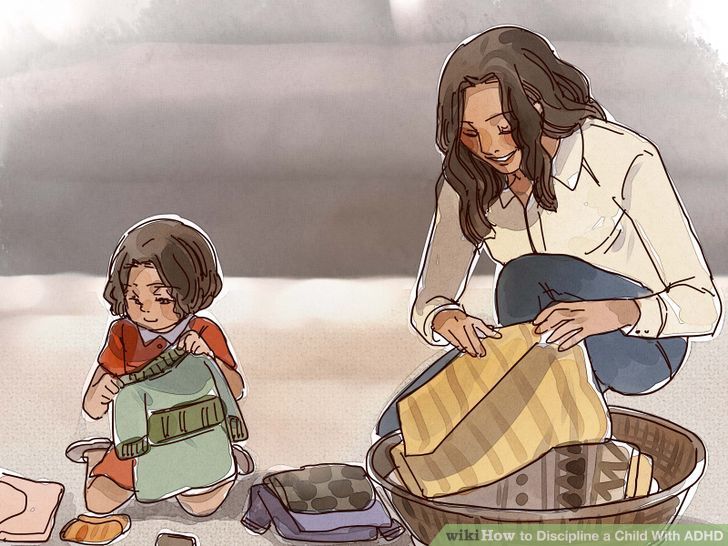
It would be good to think in advance about the child's feelings and experiences. While it is important to encourage children to use language skills, it may be worthwhile to be aware of when encouragement can turn into pressure that can negatively affect children's confidence and willingness to act. Pay attention to your child's current skill level and encourage small steps to help them progress and gain confidence at the same time. Talking to your child's teachers will also provide a ton of useful information about current skills as well as topics the kids have been working on in class or should be learning at home.
- Have the children point out similarities and differences between two languages
Teachers say that many children of foreigners who moved for permanent residence in France spend the first few months - six months in virtual silence, but at the same time they continue to develop language and communication skills. They appear to "absorb" language through the ability to hear and learn key words and phrases that are repeated regularly in familiar situations.
They appear to "absorb" language through the ability to hear and learn key words and phrases that are repeated regularly in familiar situations.
Recall your first impressions of hearing a new language and being surrounded by new unfamiliar words. You may have been amazed and excited, but it's all part of a new experience: new challenges that stimulate your horizons to develop, awareness and interest that helps you continue to learn. Encouraging children to understand and grasp the differences and similarities between words from two languages is a useful first step to help them feel connected to another culture.
- Start with words that are easy to translate
There are many ways to help children develop their understanding of spoken and written language. During lunch, pay attention to words that they can immediately understand and translate directly, point to, for example, juice or orange by saying the words in French . This will establish a visual-verbal connection.
This will establish a visual-verbal connection.
Gradually introduce more difficult words into the vocabulary that do not translate directly, but have clear contextual clues that allow you to move on to a more difficult level. For example, show a sign at a cafe called "le chat", where the title is accompanied by a clear image.
- Involve them in predictable vocabulary situations
Familiar activities, such as shopping, may provide an opportunity to hear familiar words. A daily visit to boulangerie followed by a bread purchase will include useful vocabulary and phrases such as "please", "thank you" and "I'd like to". Hearing predictable responses every day will let your child know what to expect. In this way, you will not only strengthen language skills, but also help your child integrate into society and better understand French way of life .
- Play bingo with words that children can hear regularly
The word game Bingo is an interesting approach to recognizing spoken and written language.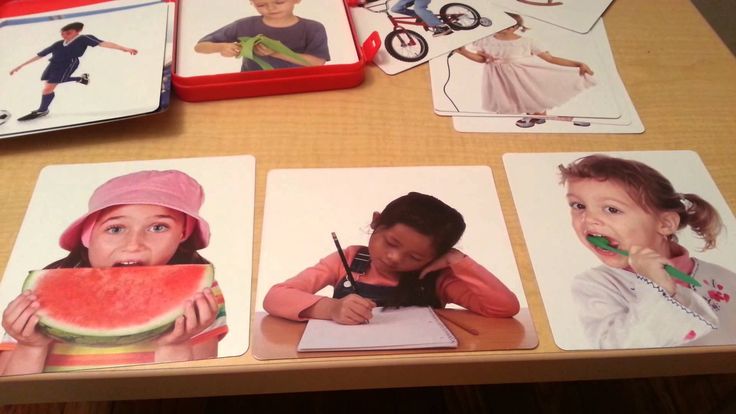 You can make flashcards that match your children's current skills or interests, or reflect vocabulary they may encounter in certain situations, such as a trip to the sea. By choosing key words and phrases they are likely to hear, children will quickly tune in to spoken language, and this will also allow them to compare pronunciation patterns. Children who have already mastered a little French , local TV and radio programs will help, naturally in the original language.
You can make flashcards that match your children's current skills or interests, or reflect vocabulary they may encounter in certain situations, such as a trip to the sea. By choosing key words and phrases they are likely to hear, children will quickly tune in to spoken language, and this will also allow them to compare pronunciation patterns. Children who have already mastered a little French , local TV and radio programs will help, naturally in the original language.
- Encourage children to identify new words in everyday situations
In general, children are especially interested in doing simple translations without having to do so when it comes to food (especially desserts), in cafes or when visiting le supermarch é . Going to the supermarket is generally a fun topic: there are many discoveries for children here, especially when you need to weigh vegetables and fruits in order to stick a price tag on the bag. In this case, active vocabulary is supported by images, encouraging children to correctly identify objects and develop their skills.
In this case, active vocabulary is supported by images, encouraging children to correctly identify objects and develop their skills.
At first, children may physically recoil if you ask them what they think of a particular word, but after a few trips, they themselves will begin to notice foreign words around them and begin to explore new possibilities on their own.
- Expand vocabulary while doing something practical
Writing a pre-made shopping list in French is a great way to build up your vocabulary. For those with more advanced skills, you can cook with recipes in French from a magazine or book. This will allow you to really immerse yourself in the language. And then you can reward yourself with a gold (Michelin) star!
- Let the children solve problems themselves (with a little help if needed)
Children love to solve problems when they are simply supported. Give them the opportunity to do their own homework, go shopping, write postcards and letters to their classmates. Your job is to ask leading questions to steer their thinking in the right direction.
Give them the opportunity to do their own homework, go shopping, write postcards and letters to their classmates. Your job is to ask leading questions to steer their thinking in the right direction.
- Encourage children to take notes
Building your own vocabulary and expanding your vocabulary is a great way to help children rethink knowledge and retain their language skills. Another trip to the supermarket will pay off if you let the kids loiter in the stationery department - who can resist little notebooks with tiny drawings in which to write down new words?
Brochures and photographs from the places they have visited serve not only as a keepsake, but also as a source of useful vocabulary. The colorful lollipop wrap will help them remember the first time they tried sucette cerise and help them remember the relevant vocabulary.
- Let the children see that you also use the dictionary
When helping children build their own dictionaries, don't be afraid to show them that you, too, use the notes and clues.












